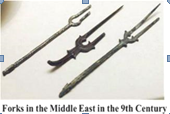-
Cool Places to Visit In the World

Beipanjiang Bridge in China is 565 meters above Beipanjiang Canyon and it is the highest bridge in the world. It links Guizhou and Yunnan, and it reduces travel time from five hours to one. On the bridge, visitors can have a wonderful view of the canyon.

CopenHill is a power plant in Denmark(丹麦)and it creates energy by burning waste. A 1,300-foot man-made ski slope(斜坡) on the roof makes it special. The slope doesn’t depend on machine- made snow or cold temperature. That means visitors can enjoy Earth- friendly fun throughout the whole year.

a roller coaste
Canada’s Wonderland is home to 17 roller coasters including the world’s fastest and longest dive(潜水)coaster. Riders hang over a 90-an underwater passage.

Icehotel in Sweden(瑞典)is the world’s first hotel made of ice. Every winter, this magical place is completely rebuilt by artists using more than 3,000 tons of ice and snow. They are made into works of art that make up every part of the hotel.
1.The world’s highest bridge is in________.
A.China B.Sweden C.Canada D.Denmark
2.Which of the four places is a power plant?
A.Icehotel. B.Beipanjiang Bridge.
C.CopenHill. D.Canada’s Wonderland.
3.What makes Canada’s Wonderland a cool place to visit?
A.A 1,300-foot man-made ski slope. B.Works of art made of ice and snow.
C.A wonderful view of Beipanjiang Canyon. D.The world’s fastest and longest dive coaster.
难度: 困难查看答案及解析
-

Luisa’s Letter
Luisa checked the mailbox. An eggshell-white envelope lay on top of all the letters. It was still there, thank goodness. She picked it and put it into her bag.
Upstairs, she handed the remaining letters to her mother. “How was school, Luisa?” Mom asked.
“It was fine,” said Luisa, giving her mother a quick hug.
In her room Luisa tried to focus on her English homework, but the letter called to her. It had traveled more places than she had. All her life, Luisa had lived in Seville, an ancient city in the southwest of Spain. Luisa loved her hometown, but she wanted to see the world.
A year abroad! What an attractive possibility! But Luisa couldn’t bring herself to raise the subject with her parents because her parents just wanted her to stay in Seville, get married, give them grandchildren. Last spring, on her own, she applied for(申请) a year of high school in England. Now, this envelope held her answer.
Luisa went to the kitchen to help with dinner. She asked, “Mom, do you ever think about traveling?
I mean, I want to. And maybe someday…live somewhere else.”
Luisa’s heart beat harder as she waited for her mother’s reaction. But Mom nodded. “Luisa, of course you’d like to travel. I want that for you and…”
Just then Dad arrived. When they sat down at the table to eat, Dad said, “Seville is the best, yes, my Luisa?” Luisa’s heart sank(为之一沉). Dad continued, “Why would people want to leave Seville?” Mom smiled, “When Luisa is old enough, we can discuss with her what’s best for her future.”
Dad raised an eyebrow but didn’t argue.
Luisa couldn’t wait any longer, but her parents’ easy chatter(聊天)was the sound of her childhood. She sank deeper into her chair and listened. Home would always be here. But when the time was right, she’d leave. And she wanted it to be with her parents’ support.
“Something came in the letter,” she said at last. “I want you to see.” She took out the letter. “I’m sorry I didn’t tell you,” her voice was shaking. “I wanted this more than anything.” Luisa waved at the unopened envelope. “But only if you say it’s okay.”
1.Last spring, Luisa________.
A.traveled abroad with her parents B.got married and started a family
C.discussed her future plan with her mother D.applied for a year of high school in England
2.How did Luisa feel as she waited for her mother’s reaction in the kitchen?
A.Excited. B.Nervous. C.Proud. D.Regretful.
3.Luisa decided to tell her parents about the letter because________.
A.she wanted her parents’ support B.she had already known the answer
C.her parents asked her for the letter D.her parents were unwilling to wait
难度: 中等查看答案及解析
-
Bacterial Quorum Sensing
Bacteria(细菌)play an important role in our lives. They can keep us alive as well as make us sick. It wasn’t until fairly recently that we learned bacteria can communicate with one another.
In the 1960s, researchers found that a kind of bacteria called Vibrio fischeri(费氏弧菌) produced no light when they were alone, but that they exhibited great amount of light as the bacterial population grew to a certain number. How did this happen? How can Vibrio fischeri tell the difference between times when they’re alone and times when they’re in a community, and then all do something together?
Researchers found they talk to each other with a chemical language—signal molecules(信号分子). Vibrio fischeri makes signal molecules, and it also has a receptor on its surface that fits like a lock and key with a signal molecule. As the bacteria increase, more and more signal molecules are sent into the environment. When signal molecules increase to a certain amount, they lock down into those receptors and information comes into the bacteria, which tells them how many neighbors there are. As soon as they realize the population has hit the certain number, all of the bacteria behave as a group, making light together. In the past ten years, researchers have found all bacteria have systems like this: they make and recognize chemical words, determine(判断)the size of the community, and carry out tasks that would be unsuccessful if a single one were to act alone. This process is called quorum sensing.
Most of the time, bacteria live with thousands of other species (种类)of bacteria. There has to be a language of interspecies communication. In fact, bacteria have another kind of signal molecule, which is the common language used by all species. Moreover, this kind of molecule has its own receptor. In this way, bacteria are able to count different populations, and then they decide what task to carry out depending on which species has the greatest population.
Knowing how bacteria communicate could influence how we fight disease. What if bacteria can’t talk or hear? They won’t recognize when there are enough bacteria and when to exhibit the group behavior to make us sick. Researchers are developing a method—to make molecules that look like the real ones and then they lock into the receptors to jam recognition of the real situation.
On the other hand, researchers also improve the conversation of the beneficial bacteria, so they can do things that we want them to do better than they would do on their own.
1.According to the passage, what can we learn about quorum sensing?
A.Quorum sensing may happen when there is only one Vibrio fischeri.
B.Signal molecules are kept away from receptors during quorum sensing.
C.Most bacteria have similar systems to make light during quorum sensing.
D.Bacteria carry out a group task when their population hit a certain number.
2.What can we learn from the passage?
A.The more species there are, the more group actions bacteria will take.
B.In different environments, bacteria have different interspecies languages.
C.Beneficial bacteria communicate better by themselves than harmful ones.
D.To fight disease, researchers try to turn off the communication between harmful bacteria.
3.The passage is mainly about ________.
A.why bacterial population grows B.how bacteria communicate with each other
C.which bacteria help fight disease D.what scientists do to find quorum sensing
难度: 中等查看答案及解析
-
Everybody hates that feeling when you spend three weeks reading a book, and a month later somebody asks you about it and you can’t remember a thing you read. It makes you wonder why you wasted a couple of hours on the words that didn’t stick.
There are some effective ways to learn. And when I say “to learn effectively”, what I mean is to not just build up knowledge, but to be able to apply(应用)that knowledge effectively at some point in the future. By this definition, most of the courses people spend money on is not learning. Something is not truly learned until it changes you in some way.
1. Memory is based on relevance (相关性)
One of my favorite online book clubs is Mentor Box. What’s cool about the club is not only do they send you books to read, but they send you study materials related to them. The study materials, instead of being like school, where it asks you to repeat information in the book to help memorize it, are designed to help you apply the lessons to various areas of your life.
That’s because memory works based on relevance. We only remember what our brain has considered important to our own lives. If you don’t find a way to make it relevant to you and your well-being in some way, your brain will conveniently forget it.
You can do this on your own. When you come across something interesting in a book, write down its application or relevance to something in your life—how you can use the idea, how it explains something in your past, how it can help with your problems, etc.
2. Reading does not have to be linear
People believe they have to read everything, line by line, one after another. This is not only not true, but it’s often a waste of time and energy.
When you buy a book, you’re not buying the words, you’re buying the useful ideas. The point of a book is to gather the information that is relevant and important to you, not to finish it or to understand every word. What matters is the principle or key idea. Once you’ve received that principle or idea, there’s no reason to feel obligated to sit there and read the rest.
3.Think critically and ask the right questions
Everything you read should be questioned. You should question the writer’s biases(偏见 ), whether they’re explaining information correctly, whether they’re overlooking something. When reading something I agree with, I’ll ask myself, “Is it possible that this could be wrong?” Everything should be taken with a grain of salt, for the simple reason that almost everything is largely uncertain. And it’s the ability to manage those uncertainties effectively that will determine the depth of your knowledge and understanding, not the ability to memorize a lot of facts and numbers.
1.According to the writer, effective learning________.
A.is a practical method to have good feelings
B.helps you explain and remember difficult words
C.happens when knowledge changes you in some way
D.is the main goal of the courses people spend money on
2.What does the writer suggest when we learn something new?
A.Read line by line to receive useful ideas.
B.Repeat and rethink information to deepen our memory.
C.Build connections between books and our personal life.
D.Keep asking questions to understand the writer’s opinions.
3.The underlined word “obligated” probably means “________”.
A.worried B.forced C.relaxed D.interested
4.Which of the following would be the best title for the passage?
A.How to Become A Better Learner
B.How to Memorize Things Effectively
C.Ways of Building Relevance in Your Life
D.The importance of Asking the Right Questions
难度: 困难查看答案及解析
